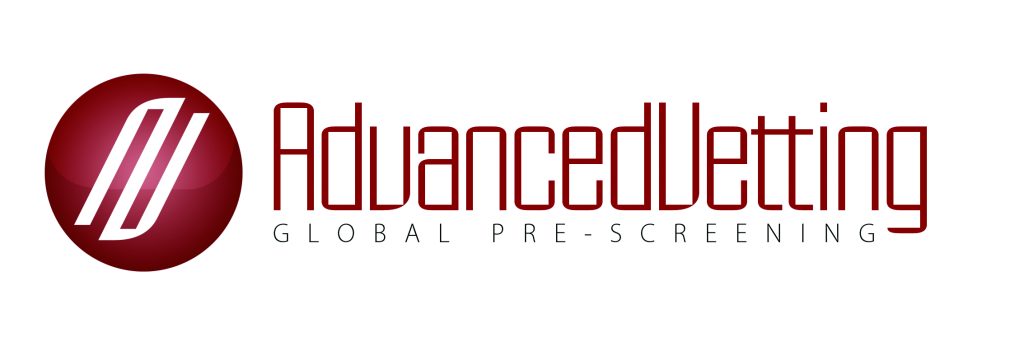The way we work has undergone a fundamental shift. Remote jobs, once a rare perk, have become the norm for millions worldwide (about 28% of professionals). While this flexibility offers undeniable benefits – no more commutes, a better work-life balance – it also presents new challenges for businesses.
One of the biggest is remote work employee verification. How do companies ensure candidates are who they claim to be when face-to-face interactions are off the table? From fake identities to credential fraud, the risks are real. This makes thorough verification processes more crucial than ever.
Why Has Employee Verification Become More Complex in Remote Settings?
In the past, verification was more straightforward. A new hire would come to the office, show their ID, and HR would check it in person. Now, with many people working remotely, this face-to-face check isn’t possible. This matters because proper checks help make sure:
- The person is legally allowed to work in the UK
- They have the skills and background they claim
- They don’t pose a risk to your business
- You’re following UK employment laws
Without good verification, you risk onboarding someone who isn’t qualified or even someone using a fake identity.
What Verification Challenges Do Remote Employers Face?
Remote recruitment can be challenging. Especially when it comes to verifying a candidate’s identity, work history, and legal right to work. Without in-person meetings, employers must rely on digital checks. These can be harder to navigate and more vulnerable to fraud.
Identity Verification
When hiring remotely, you can’t just look at someone’s passport or driving licence in person. This makes it harder to be sure documents are real. Fake IDs can be easier to use when everything is done online.
Right to Work Checks
Every UK employer must check that workers have the legal right to work here. Remote hiring makes these checks trickier. The UK government has created new digital options, but using them correctly takes know-how.
Employment History Verification
It’s harder to check someone’s work history when everything is remote. HR teams must find new ways to ensure job candidates haven’t made up or stretched the truth about their past jobs.
Criminal Record Checks
Criminal record checks are essential for certain jobs, especially those involving vulnerable people. Doing these checks remotely while following UK laws can be tricky. It can also add extra steps to the hiring process.
How Can Employers Effectively Verify Remote Workers?
Verifying remote employees doesn’t have to be a guessing game. The right digital tools and processes can help employers confirm a candidate’s identity, work eligibility, and background. All without ever meeting in person.
Digital ID Verification
New tools make it easier to check IDs remotely. Employers can now use apps to scan ID documents, systems that match faces to ID photos, and checks that ensure a person is live on camera. Some tools also verify details against official records to spot fake IDs.
To improve security, technologies like Identity Document Validation Technology (IDVT) and certified Identity Service Providers (IDSPs) help businesses verify identities digitally. These solutions follow UK regulations and reduce the risk of fraud, making remote hiring safer and more reliable.
Remote Right to Work Verification
Since 1 October 2022, employers must use one of three methods for right-to-work checks:
- face-to-face verification
- Home Office online checks
- IDVT through certified IDSPs
Digital right-to-work checks are now allowed for those with biometric permits or EU settled status.
Employers must keep digital records of all checks and use systems that stay updated with changing rules. It’s important to follow these legal requirements carefully, as failure to do so can result in penalties of up to £20,000.
Pre-Employment Screening Process
A strong remote screening process includes digital ID checks, right-to-work verification, and confirming a candidate’s job history, education, and qualifications. Employers should also check social media presence and gather references from past employers to get a full picture of a candidate’s background.
For roles that require criminal record checks, employers can use DBS checks for UK workers and the ICPC for overseas candidates. Getting records from other countries may take extra steps and careful coordination to ensure compliance.
What Benefits Does Proper Remote Verification Offer?
Good verification helps your business in many ways:
- Lower Risk – proper verification ensures you hire trustworthy employees. It flags those who provide false information about their identity.
- Legal Safety – following UK employment laws helps your business stay compliant. You can avoid costly fines for improper hiring practices.
- Better Security – thorough checks protect company data. They prevent unauthorised individuals from gaining access to sensitive information.
- Faster Hiring – digital verification speeds up the hiring process. The process becomes more efficient than traditional paper-based checks.
- Stop Fraud – strong verification measures help prevent identity theft. It also reduces the risk of fraudulent applications slipping through.
How Can Advanced Vetting Support Remote Employee Verification?
At Advanced Vetting, we help businesses verify remote workers safely and legally. With remote hiring on the rise, ensuring candidates are who they claim to be is more important than ever. Our expert screening services give businesses the confidence they need when hiring remotely.
We offer:
- Pre-Employment Screening – A detailed background check to confirm a candidate’s credibility. This can cover identity, employment history, and qualifications.
- Criminal Record Checks – We verify whether a candidate has any undisclosed criminal history. This ensures compliance and workplace safety.
- International Vetting – We screen global candidates to verify identity, work history, and qualifications.
Every business has unique hiring needs, which is why we create tailored screening solutions. It doesn’t matter if you’re verifying local or international remote workers. Advanced Vetting ensures your hiring process is thorough, compliant, and secure.
Looking Forward: The Future of Remote Employee Verification
As remote work grows, verification will keep changing. New tech like blockchain for checking credentials and better face-matching systems will make remote checks even more secure. Companies will have to keep up with these changes. Working with experts like Advanced Vetting helps ensure you follow best practices and stay on the right side of the law.
Partner with Advanced Vetting
Want to learn how we can help verify your remote workforce? Contact our team today. We’ll help you protect your business while enjoying the benefits of remote work through reliable verification checks.
Additional sources:
https://www.statista.com/topics/6565/work-from-home-and-remote-work/#topicOverview
https://www.gov.uk/check-job-applicant-right-to-work
https://www.digidentity.eu/services/identity-proofing/right-to-work
FAQs on Verifying Remote Workers:
Why is remote employee verification more complex now?
Remote hiring limits face-to-face ID checks, increasing the risk of fraud and requiring stronger digital verification methods.
What are the biggest challenges of remote identity verification?
Lack of in-person checks, risk of fake documents, legal compliance, and inconsistent work history claims are key issues.
How can UK employers verify remote workers’ right to work?
Use face-to-face checks, Home Office online tools, or IDVT through certified providers for legal right-to-work verification.
Are digital right-to-work checks legal in the UK?
Yes. Since October 2022, employers can use IDVT and online systems if they follow certified processes and keep proper records.
What tools help verify remote worker identities?
ID verification apps, facial recognition, liveness checks, and certified IDSP platforms help detect and prevent fake identities.
Can criminal record checks be done remotely?
Yes. Use UK DBS for domestic hires and ICPC or local authorities for international candidates, ensuring legal compliance.
What is IDVT and why does it matter?
IDVT (Identity Document Validation Technology) helps verify IDs remotely and is approved by the UK government for right-to-work checks.
How does Advanced Vetting support remote hiring?
We provide tailored screening services including identity, background, and international checks for secure remote hiring.
What risks does poor verification pose to businesses?
It increases chances of hiring fraudsters, legal fines, data breaches, and potential reputational damage.
How can proper remote verification improve hiring?
It speeds up onboarding, prevents fraud, ensures compliance, and helps hire credible, qualified employees.






